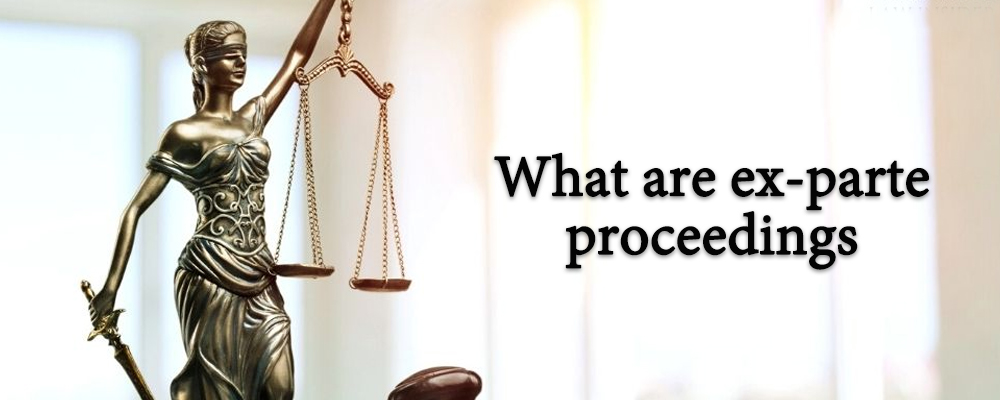There is a famous latin phrase that is ‘Audi Alteram Partem” that means listen to the both side or both side should be listened and this phrase is one of the essential part of the natural Justice, every party either plaintiff or defendant both has the right to be heard in fair way, the court issue the summon to the party to appear before the court on the prescribed date given by the court, when in any proceeding of the suit of civil nature, where the plaintiff was present but the defendant was not present, and thus the summon are being issued by the court to the defendant,then the court have the authority to proceed against the defendant and pass an ex parte decree, under order 9 rule 6 of the CPC the court has the jurisdiction to pass ex parte decree
The order says that despite the summon has been issued to the defendant but he/she have not appeared before the court, the court here have the power and the authority to pass an ex parte decree, and if the summon is not issued by the court, the court will issue the summon again to the defendant, if the summon are served properly but the defendant despite of such effort don’t appear before the court because of the time the court will provide a future date for the proceeding,and if the summon is not served by the plaintiff properly then the court will direct the plaintiff to pay the cost of adjournment of the hearings.
Need A Legal Advice
The internet is not a lawyer and neither are you. Talk to a real lawyer about your legal issue

Order 9 rule 13 this rule provide the remedy for the defendant to keep aside the ex-parte decree, which was passed by the court due to the no appearance of the defendant in the particular lawsuit, the ex parte decree can be set side only when the defendant shows or presents the the reason that satisfies the reason in the court for not attending the proceedings of the court.
The court also set aside the ex parte decree when the defendant gives the satisfactory reason before the court that the summons was not served properly.
When the sufficient ground are being satisfied by the defendant the court set aside the ex- parte decree, once the court is satisfied the court will set aside the ex parte decree, and thus the civil court provide the remedy and the opportunity to represent the case
There are the remedies for the defendant against whom the ex-parte decree has been issued:
- Application under Order 9 Rule 13 to set aside the ex- parte decree
- Appeal against the particular decree
- Can file for revision
- Can apply for the review
- Suit on the ground of fraud by the plaintiff
The presence of the parties in court is essential. A party may bring himself or his legal representative to court to represent the case. The court may dismiss the action if both parties are not present. If the defendant ignores the court’s notice and fails to appear, the court will mail the summons to the defendant. The court decides unilaterally. Defendants have certain legal remedies against unilateral judgments. If the defendant shows good reason for not appearing in court, the court shall reverse the unilateral order. A fair trial is a principle of natural justice. And the court will ensure that neither party has been wronged. Therefore, both parties must advocate for themselves so that they are given an equal opportunity to bring their case in court.
How can Lead India Help you?
Lead India has the expert panel of the advocates who are best in their field to give you advice for civil litigation , who will help you in filing any kind of civil suit and also will assist you until the final deposition of the case.





 Talk to a Lawyer
Talk to a Lawyer